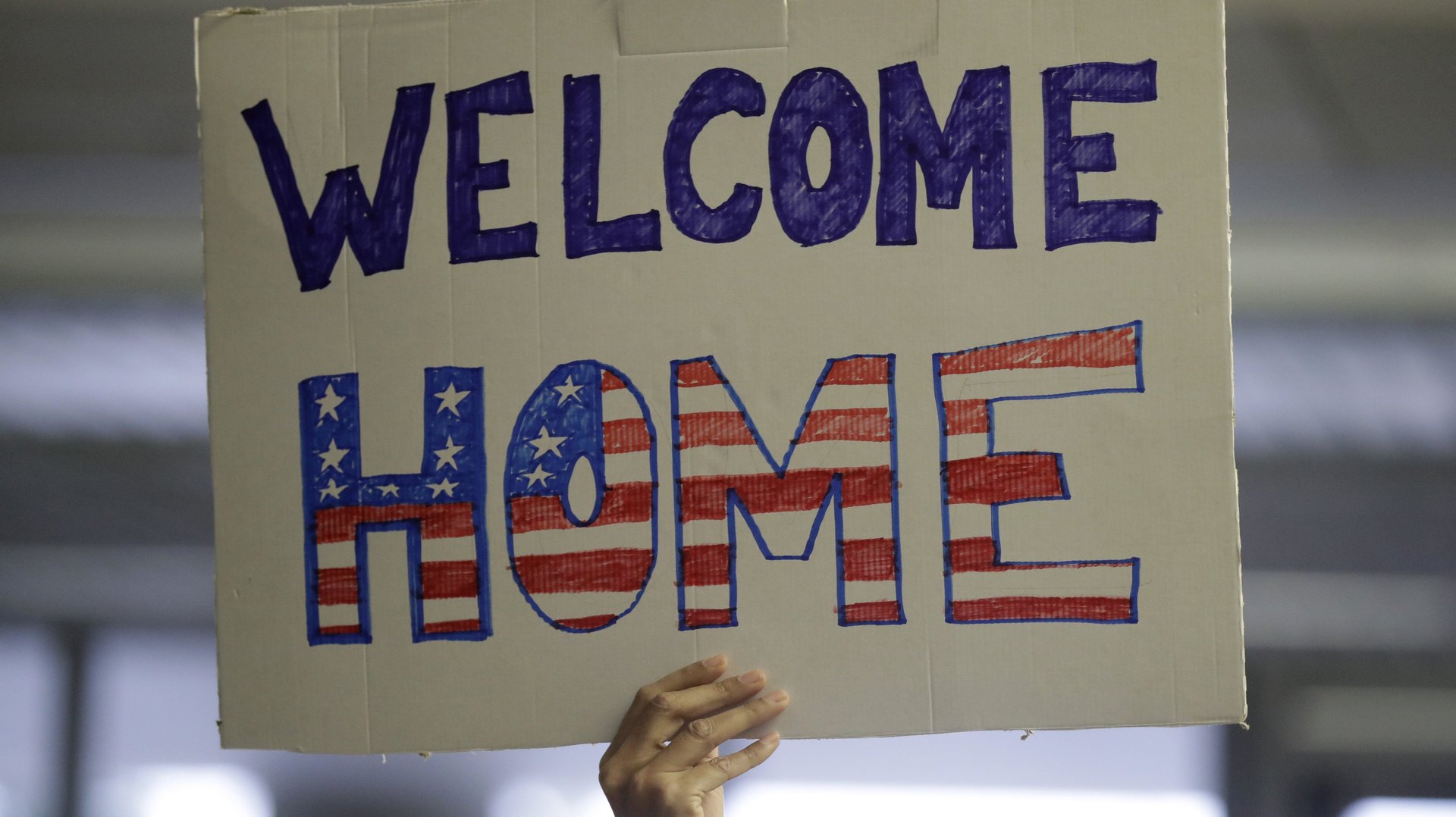Federal judges have refused to reinstate the US travel ban, asserting their authority over Trump
Citizens of seven majority-Muslim countries can continue to enter the United States after an appeals court rejected the government’s emergency motion to reinstate the ban.


Citizens of seven majority-Muslim countries can continue to enter the United States after an appeals court rejected the government’s emergency motion to reinstate the ban.
The 29-page ruling (pdf) doesn’t strike down US president Donald Trump’s executive order. More extensive hearings on that question will be held in March. But the decision is still a major setback for Trump, who last month ordered a halt to nearly all travel from countries he deemed a threat to American security.
It doesn’t bode well for the Trump administration’s chances when the broader case is reviewed, either. The judges were dubious of the government’s argument that presidential orders concerning national security are “unreviewable” by courts. “There is no precedent to support this claimed unreviewability, which runs contrary to the fundamental structure of our constitutional democracy,” the judges wrote.
“It is beyond question that the federal judiciary retains the authority to adjudicate constitutional challenges to executive action,” they wrote, asserting their authority at a time when Trump has belittled judges who rule against him.
Trump didn’t wait long to react to the court’s decision on Twitter, referencing a likely showdown at the US Supreme Court.
His rival in the 2016 election also weighed in, referencing the unanimous ruling by the appellate judges.
While acknowledging that Washington and Minnesota, the states that brought the complaint, “raise serious allegations and present significant constitutional questions,” the court did not rule on those with this decision. The judges explained:
“In light of the sensitive interests involved, the pace of the current emergency proceedings, and our conclusion that the Government has not met its burden of showing likelihood of success on appeal on its arguments with respect to the due process claim, we reserve consideration of [constitutional] claims until the merits of this appeal have been fully briefed.”
The judges also said that Trump’s calls for a “Muslim ban,” during his campaign for president, were acceptable as evidence of the order’s intent to discriminate against a particular religion. The seven countries covered by the ban—Iran, Iraq, Libya, Somalia, Sudan, Syria, and Yemen—are predominantly Muslim, though still represent a minority of Muslims worldwide.
Human rights and immigration advocates welcomed the decision, while acknowledging that this won’t be the last word on the matter.
“The confusion and chaos that resulted from the Administration’s hasty and harmful executive order should be a lesson to keep intact carefully developed procedures that have kept America safe,” David Miliband, CEO of the International Rescue Committee, wrote in a statement. “We are grateful that we can get back to work resettling refugees who have fled the terrors of war and violence.”
The judges noted that both sides in the case had valid claims to public interest. “On the one hand, the public has a powerful interest in national security and in the ability of an elected president to enact policies,” they wrote. “And on the other, the public also has an interest in free flow of travel, in avoiding separation of families, and in freedom from discrimination.”
They continued: “We need not characterize the public interest more definitely than this; when considered alongside the hardships discussed above, these competing public interests do not justify a stay. … [T]he emergency motion for a stay pending appeal is DENIED.”
With additional reporting by Ephrat Livni.